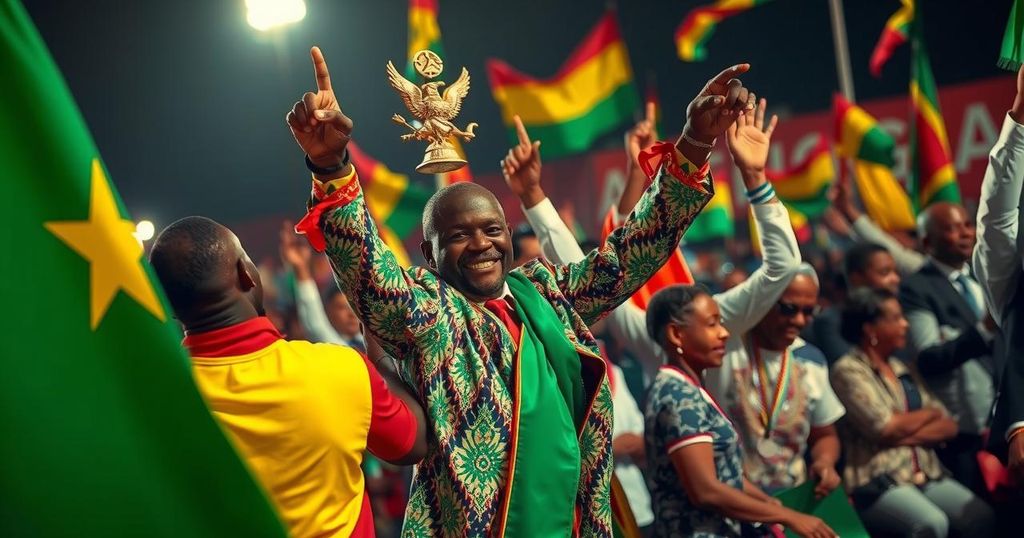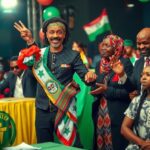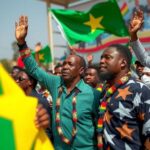Senegal’s Ruling Party PASTEF Secures Victory in Legislative Elections
Senegal’s ruling PASTEF party has declared a decisive victory in the legislative elections, enabling President Bassirou Diomaye Faye to pursue his reform agenda more fully. Despite allegations of electoral fraud from former President Macky Sall and targeted opposition criticism over governance issues and economic challenges like high unemployment, the outcome provides Faye a stronger parliamentary position to address pressing issues.
Senegal’s ruling party, PASTEF, has announced a significant victory in the recent legislative elections, following closely on the heels of President Bassirou Diomaye Faye’s presidential triumph earlier this year. With nearly all votes counted, PASTEF appears to have convincingly secured a majority. This outcome empowers President Faye to advance his ambitious reform agenda, which had previously faced challenges due to a lack of parliamentary majority. Government spokesman Amadou Moustapha Ndieck Sarre expressed gratitude to the Senegalese populace for their support, stating, “I pay homage to the Senegalese people for the large victory that it has given to PASTEF.” Meanwhile, the two main opposition parties conceded defeat amidst ongoing vote counting. Barthelemy Dias, leader of the SAMM Sa Kaddu coalition, acknowledged PASTEF as the election victor. Former President Macky Sall, currently leading an opposition movement from abroad, alleged that the elections were tainted by extensive fraud perpetrated by PASTEF, although he did not provide specific details to substantiate these claims. With President Faye’s previous administration hampered by opposition control in parliament, his election win now positions him to push through reforms addressing issues like corruption controls and resource distribution, which he has deemed critical for the nation’s development. The political landscape remains dynamic, as former President Sall faced scrutiny for igniting protests prior to the elections, reflecting discontent regarding the current administration’s performance. The new government has also encountered accusations from opposition leaders regarding perceived inactivity and a focus on settling scores from the past. Current economic challenges, including high unemployment rates exceeding 20%, further complicate the governance landscape, with the government facing pressures to deliver on campaign promises while managing a widening budget deficit. Despite these hurdles, authorities have begun implementing measures to reduce everyday living costs for citizens, though this policy bears the risk of straining fiscal sustainability.
The political situation in Senegal has been marked by a series of significant transitions following the election of President Bassirou Diomaye Faye in March. His party, PASTEF, faced challenges in parliament due to a lack of majority, hindering legislative progress on his proposed reforms. The recent legislative elections were seen as crucial for establishing this majority, providing Faye with a clearer avenue to enact his policy goals. Additionally, Senegal’s political dynamic is complicated by ongoing allegations and tensions between the ruling party and various opposition groups, influencing public sentiment and political stability.
In conclusion, the victory of Senegal’s PASTEF party in the legislative elections has granted President Bassirou Diomaye Faye the opportunity to pursue his reform agenda more effectively. While former opposition leaders have raised concerns about fraud and governance issues, the election outcome marks a decisive moment for the ruling party to address the pressing challenges facing the nation, including high unemployment and economic strain, while striving to fulfill the promises made to the electorate. The coming months will be critical as the new government attempts to translate electoral success into tangible improvements for the populace.
Original Source: www.dw.com








Post Comment